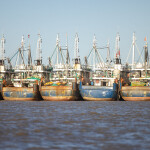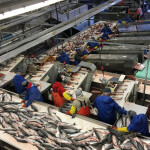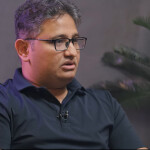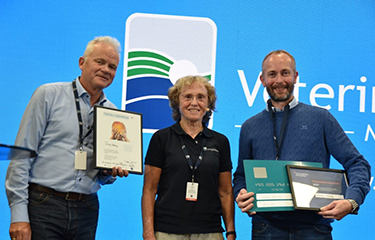Oslo, Norway-based Cermaq has received recognition for its work to improve fish welfare at AquaNor, which took place from 24 to 27 August in Trondheim, Norway.
The award recognizes the company’s work on improving welfare at its fry plant Holmvåg in Steigen, Norway, and the results of that work, Cermaq said in a press release.
“Good health and welfare for our fish is fundamental in all our work throughout our value chain across all companies in Cermaq,” Cermaq Norway Managing Director Knut Ellekjær said. “Good welfare gives a strong and robust fish, good production results, and good financial results in the end.”
At the facility, the company said the company has specialized in the early stages of the salmon life-cycle – from roe to fry. By observing the feeding behavior of fry – and adjustments of tank hydrodynamics, feed distribution, and water temperature – the company has improved the survival rate and quality of the fry at the facility.
“By observing the fry’s behavior closely, we have been able to act and make adjustments that have given very good results. A result of these changes, we now start with 5 percent fewer roe grains, but still produce the same amount of fry at the facility,” Cermaq Norway Fish Health and Freshwater Manager Marit Mehus said.
The company added that the equipment the company is using for the new results isn’t new – the tanks, it said, have been in use since the late 1980s. The observation of the animals, and the use of new techniques, is more important.
"These results show that we can make important steps for improved fish welfare also on older facilities,” Mehus said. “What the staff at Holmvåg have done here is impressive and demonstrates how important their strong commitment to the fish is.”
The company also recently announced a new partnership with a Norwegian start-up producing kelp. Cermaq and Folla Alger entered into an agreement on integrated salmon and kelp farming in collaboration with leading researchers in the country. According to Cermaq, Folla Alger will use nutrients from salmon cages to help farm kelp, and in turn develop kelp into a new feed raw material for salmon.
“We want to contribute to developing a new industry and provide environmental benefits, but also jobs and ripple effects. That is why we are very happy to start the project together with Cermaq, which is a driving force on climate and the environment,” Folla Alger Board Chair Tarald Sivertsen said.
Nutrients from salmon cages that are water-soluble will be used to fertilize kelp, which helps reduce the facilities’ carbon footprint.
“Integrated salmon and kelp farming enables us to both utilize nutrients around the farming cages as a resource, and that we get more alternative feed raw materials,” Ellekjær said. “It is good circular economy, and will help reduce the footprint from salmon farming.”
Photo courtesy of the Norwegian Veterinary Institute







